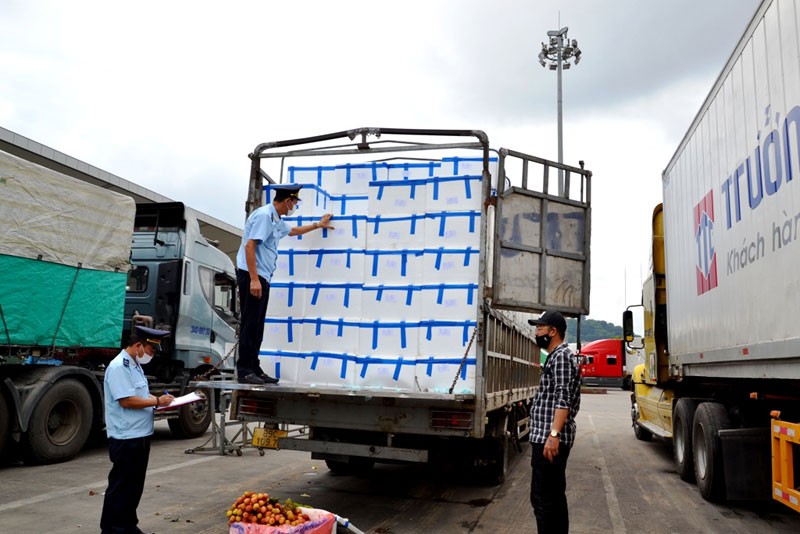 News
News
Recently, the Vietnam Federation of Trade and Industry (VCCI) in collaboration with the General Department of Customs and the People's Committees of 4 provinces, Quang Ninh, Hai Duong, Hung Yen and Hai Phong cities held a dialogue conference with the topic: "Remove difficulties for enterprises in import and export activities in 4 provinces and cities: Quang Ninh, Hai Phong, Hai Duong and Hung Yen".
At the conference, representatives of businesses as well as many associations raised many problems. Currently, about 38% of enterprises still have difficulties in finding out information about administrative procedures, concerned about changing legal regulations on customs clearance, 59% of enterprises have difficulties in carrying out inspection procedures. specialized examination…
Specifically, when surveying the implementation of customs procedures, businesses said that inconsistent regulations and lack of coordination among agencies cause difficulties for businesses when performing tax obligations. ; there is still a situation where the test time is long and the test content is overlapped; Enterprises often face obstacles at the pre-customs declaration stage and at the customs declaration stage.
 |
| Currently, about 38% of businesses are complaining that it is difficult to access information on administrative procedures on import and export |
Regarding the issue of specialized inspection and management, there are still many shortcomings, enterprises said that the order and procedures for specialized inspection are still complicated; the list of goods subject to specialized inspection is too large; the implementation of specialized inspection is troublesome; Although most specialized inspection procedures are carried out in centralized inspection at border gates, there are still cases where enterprises have to go to ministries and branches to complete the work...
Speaking at the conference, Mr. Le Manh Cuong, Standing Vice Chairman of Hai Phong Logistics Association , said that in recent years, ministries and sectors have actively reformed administrative procedures to facilitate trade. especially in granting Certificates of Origin (C/O), helping businesses boost import and export.
However, there are still many items subject to specialized inspection and there are also many items under the management of 2 or more ministries.
Regarding specialized inspection procedures, currently, only specialized inspection procedures in the field of food hygiene and safety according to Decree 15/2018/CP dated February 2, 2018 are applied in the form of management. risk management, reduced testing, routine inspection, and tight inspection.
Meanwhile, the recognition and recognition of the quality of foreign goods is still very limited. Basically, the current specialized inspection has not yet applied the mutual recognition, recognition of the quality of foreign goods, and the application of traceability in specialized inspection.
“In fact, enterprises declare phytosanitary procedures for import and export shipments on the national electronic portal (VNSW). But, through customs, the quarantine agency that issues the quarantine certificate still has a manual process. Specifically, the enterprise prints a certificate of quarantine for the customs office to see or notify by phone to the civil servant to do the customs clearance operations for the shipment on the system, then the declaration will be notified. Quan" Mr. Cuong gave an example.
According to Ms. Luong Thu Huong, Chairman of Hai Duong Business Association, the import and export activities of many businesses still face many difficulties and obstacles, such as the specialized inspection in import and export of goods is still not quick. , update information is not synchronized.
For example, if you have paid taxes online, you must take a copy to submit to the customs office. The time of customs clearance inspection is still slow, affecting the quality of goods, especially agricultural products. Administrative procedures still have many points where there is no uniformity among ministries, agencies and agencies.
Businesses recommend that customs and agencies involved in handling import and export procedures need to connect and share common data on the enterprise's goods inspection history to reduce overlap in specialized inspection; supporting businesses more effectively with procedures to determine the application code (code of imported and exported goods). At the same time, build a mechanism to monitor administrative discipline, public service and transparency in handling violators, and have effective mechanisms for enterprises to propose and complain about harassing and troubling acts; continue to improve the operation of the National Single Window Portal…